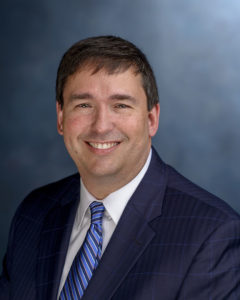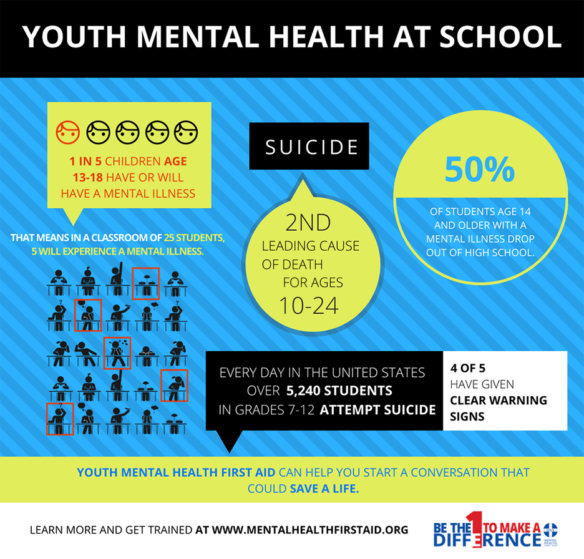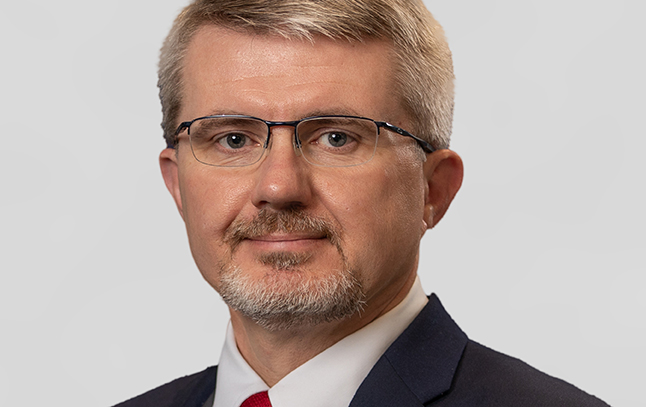
Stephen Pruitt
The numbers are sobering
According to the National Institute of Mental Health, suicide was the second leading cause of death in 2015 among those aged 15-24. And the National Alliance on Mental Illness says 90 percent of those who die by suicide have an underlying mental illness.
Kentucky is not immune to the prevalence of mental illness or suicide. In a 2016 Kentucky Incentives for Prevention survey of more than 111,000 students from across the Commonwealth, 20.6 percent of participating 10th-graders showed signs of serious psychological distress – an increase of almost 3 percentage points since 2014. And 15.4 percent of Kentucky’s 10th-graders reported having considered suicide in the past 12 months, with 12.5 percent of them saying they had made a plan for how they would attempt suicide during the same time period.
We can’t let this kind of pain and distress continue among our Commonwealth’s youth.
We, as educators and parents, often talk about academic achievement – and rightly so. Academic achievement – preparing students for the lives they will lead after high school – is one of the top concerns I have as commissioner, but it’s not the only one.
What we aren’t talking about often enough is the social and emotional health of our students. We have to start making that a part of our regular conversations. We can talk all day about academic achievement, but the reality is if we don’t start paying attention to the whole child – which includes the emotional wellbeing of our students – one really has to question how important the rest of it is.
In one Kentucky district, we even suffered the tragedy of losing two young students who both decided to take their own lives during the 2016-17 school year. I addressed those tragic events in a recent message to educators, but that doesn’t go far enough.
We’ve already taken some steps in Kentucky to help meet the social and emotional needs of our students through an $8.1 million federal grant we received in the fall of 2014 called Advancing Wellness and Resilience in Education (AWARE).
Through the AWARE grant, all of the teachers in Pulaski County and the Kentucky School for the Deaf – as well as selected schools in Fayette County – have received training about evidence-based interventions for students who have experienced trauma. The schools have increased their use of evidence-based training for suicide prevention and now hold mental health awareness activities for students and adults.
In addition, through Kentucky AWARE more than 3,000 adults have been certified in Youth Mental Health First Aid during the past two years. Youth Mental Health First Aid is a day-long course for adults who are not mental health professionals that trains them how to recognize symptoms of mental health problems or crises in young people, offer them initial support and connect them to appropriate professional help. People who received the training stepped in to help connect young people to mental health supports almost 5,000 times so far.
 These mental health “First Aiders” are powerful drivers of early access to care for young people experiencing a mental health challenge. Ninety percent of all cases of mental illness are treatable with a variety of interventions and supports, yet it takes an average of 10 years from when the symptoms first appear before that treatment begins. We need to do our best to focus on prevention and make sure kids get connected to help early, before problems become overwhelming.
These mental health “First Aiders” are powerful drivers of early access to care for young people experiencing a mental health challenge. Ninety percent of all cases of mental illness are treatable with a variety of interventions and supports, yet it takes an average of 10 years from when the symptoms first appear before that treatment begins. We need to do our best to focus on prevention and make sure kids get connected to help early, before problems become overwhelming.
That’s progress, but it’s not good enough. That’s why I’ve been talking to education leaders in other states to get new ideas on how we can do more.
We’ve got to – as an education community and maybe even as a society – begin to realize that we can’t afford to not respond when our students are showing signs of distress. This is something I’m going to be talking about a lot more in the coming months. I’m also going to commit more resources here at the department to begin focusing on this issue.
Focusing on our students’ social and emotional wellbeing isn’t just the right thing to do, it turns out that it also makes good economic sense. A recent issue of the journal Child Development featured a paper that examined 82 school-based social and emotional learning interventions involving almost 100,000 children, ranging from kindergarten to high school. While the programs the schools used varied, all of them focused on building positive student interactions, social skills and attitudes.
The studies showed that after students completed this social-emotional training, they scored higher academically than their peers, had higher high school graduation rates and even were more likely to attend college and receive a degree. Improving academic performance, increasing graduation rates and degree attainment while helping students develop their ability to cope with the changes we all face in life can only help improve the future Kentucky workforce.
For all these reasons, we have to make the social and emotional health needs of Kentucky’s public school students a more prominent part of our discussion. If we really believe these kids are our future, then we need to make sure they see that they have a future.
Sept. 10-16 is National Suicide Prevention Week, so now is the perfect time to begin looking at what we as a state, as a community and even individually, are doing to reach out to children who are experiencing a crisis. I’ll be seeking your input in the coming months about how we can best serve all children’s social and emotional needs, so please be prepared to respond when the time comes. It’s going to take the will and the effort of all of us in the Commonwealth to make sure we can offer a helping hand to children in need.



Kentucky also has 800+Family Resource and Youth Services Centers (FRYSC) of which Family Crisis and Mental Health Counseling is one of the core components mandated to be addressed. In my school alone, we usually have up to 10% of our student body (approximately 1,500 to 1,600+ students) in much needed on-site mental health counseling through the Youth Services Center. This assistance includes direct services and referral services but all are on-site and have a direct tie to an educational barrier. There are also referrals to outside counseling and therapy agencies as different non-educational mental health needs arise and families come to local FRYSCs for linkage to local services. I am so proud to be a part of the FRYSC mission and vision. I am also proud to be a Kentuckian and to have Kentucky be a national leader in the whole child educational movement through their Family Resource and Youth Services Centers.